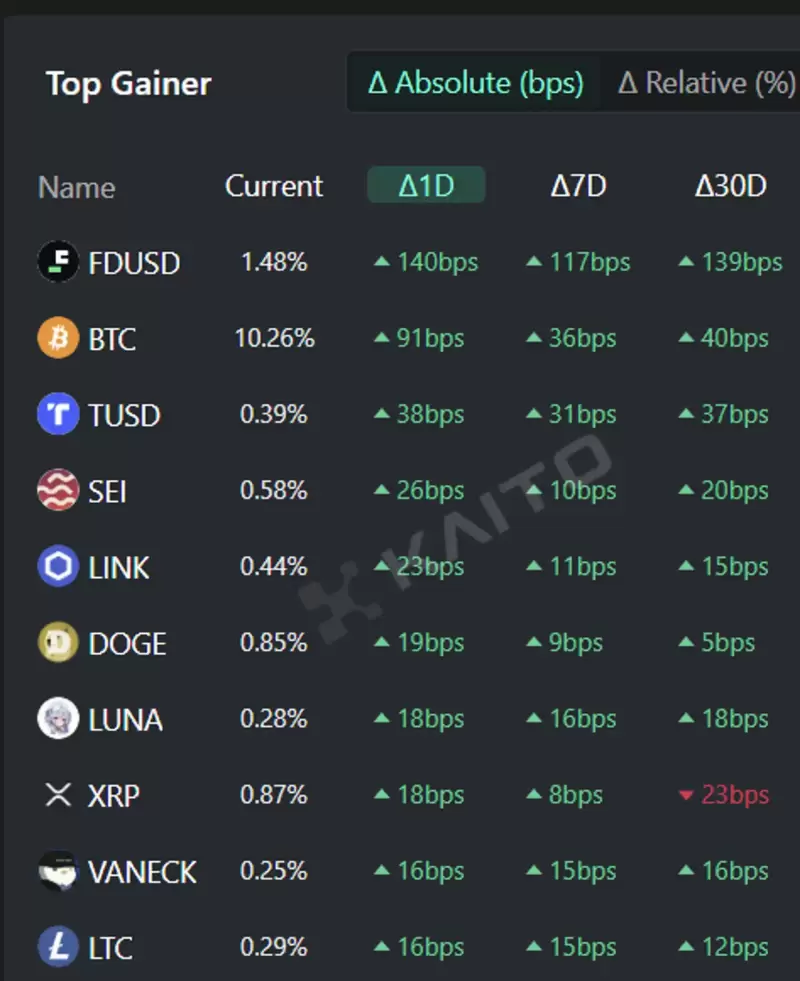 |
|
 |
|
 |
|
 |
|
 |
|
 |
|
 |
|
 |
|
 |
|
 |
|
 |
|
 |
|
 |
|
 |
|
 |
|
Cryptocurrency News Articles
With Decentralized AI and Tokenized Ownership, We Can Fight ‘The Six’
Nov 02, 2024 at 03:01 am
Orthodox venture capital will never provide the resources for decentralized AI to take on Microsoft, Alphabet, Apple, et al. The only way is to supplant equity financing with user-owned, token-based systems, says Michael J. Casey, Chairman of The Decentralized AI Society.

The six most heavily capitalized companies in the U.S. are engaged in a spending war as each tries to outrace the others toward artificial intelligence (AI) supremacy.
Together, Microsoft, Alphabet, Apple, Meta, Amazon and Nvidia are booking $1.8 trillion in annual revenues, a number that would put their combined inflows in 10th place of global country rankings if we viewed them as a proxy for national gross domestic product (GDP) – just behind the gross output of Brazil's 220 million people.
Meanwhile, The Six have a combined market capitalization of $15 trillion, capturing an astounding one third of the entire S&P 500 index.
Despite – or perhaps because of – this unprecedented scorecard, these companies are relentlessly competing for world domination. Doing what great American companies have always done, they’re unleashing a competitive instinct that, in a normal capitalist economy of diversified goods and services, is the core driver of technological progress.
So, don’t worry about The Six. Worry about us.
Because our problem amid the dizzying advance of AI is definitely not one of a shortfall in technological progress. It’s that this particular form of technological progress comes with risks to human autonomy and safety. And to mitigate them, the question of who controls AI’s development and whether their incentives are aligned with the broadest base of humanity is fundamental.
Just as was the case for Alphabet’s Google, Meta’s Facebook and Amazon’s marketplace, the development of these six companies’ large language models (LLMs) and other AI machinery is occurring within closed, black-box systems.
They’ve ingested the troves of data we all unwittingly poured into internet sites, and have built highly complex codebases into which no one has visibility. Between them, they dominate all layers of the AI stack: the storage (Amazon Web Services), the chips for computation (Nvidia), the AI models (Microsoft, with its investment in Open AI), the data (Alphabet and Meta) and the devices we use to interact with AI services (Apple).
They might be competing with each other, but they form a vertically diversified oligopoly. Or rather, given the undeniable power that their technology can wield over people’s lives, they’re an oligarchy. Indeed, the secrecy around the means by which they exercise that power is characteristic of most oligarchical dictatorships.
Toward the latter phase of the Web2 era, people eventually came to understand Bruce Schneier’s memorable observation that we are not the internet platforms’ customers; we are their products. With that awareness, we’re now also finally opening our eyes to how these companies have long been incentivized to modify people’s behavior in unhealthy ways to maximize shareholder returns.
It is no longer controversial to talk of the psychological harm done by the algorithms of Facebook, YouTube, Tik Tok and their ilk, which were blatantly designed to exploit dopamine releases to encourage continued, addictive engagement.
When Frank McCourt and I published Our Biggest Fight in March 2024, we were overwhelmed by parents’ horror stories of the harm social media had done to their kids. And then a Harris Poll coordinated by NYU Professor Johathan Haidt found that young people are just as concerned: nearly half of Gen Z wishes that TikTok and X (Twitter) never existed, even as 83% of the same cohort said they spend four hours a day or more on social media.
So, if we now know of the harms, why on earth would we extend the same oligopolistic control structure into the AI era? AI will put the Web2 oligopoly on steroids.
This is why I believe the creation of distributed, collectively owned open-source AI is a vitally important use case for Web3 and blockchain technology. It’s the only way to avoid the problem of misaligned incentives.
Sure, there are technical challenges, such as the latency that, for now, makes distributed machine learning inefficient, the capacity limits of on-chain data, or the privacy risks inherent to public blockchains. But innovators are already hard at work on outside-the-box solutions to these problems, motivated by the huge economic and reputational payoff promised by overcoming them. And when they do, the inherent information advantages enjoyed by open systems over closed systems will give decentralized AI a fighting chance. Achieve that, and “DeAI” will represent not only the right moral path but also the economic winner.
Here’s the rub: time is not on our side. And the fight is heavily lopsided. As cited above, The Six have an unprecedented $15 trillion war chest.
In the 2000s, Facebook and Google learned that their high-value share prices gave them a currency with which to relentlessly acquire startups that could either enhance or threaten their dominance. Now, The Six have even greater capacity to buy up and integrate whatever breakthroughs in AI are coming, be it in independent AI agents or more efficient systems of compute
Disclaimer:info@kdj.com
The information provided is not trading advice. kdj.com does not assume any responsibility for any investments made based on the information provided in this article. Cryptocurrencies are highly volatile and it is highly recommended that you invest with caution after thorough research!
If you believe that the content used on this website infringes your copyright, please contact us immediately (info@kdj.com) and we will delete it promptly.
-

- Ripple (XRP) Introduces Its RLUSD Stablecoin to the Stablecoin Market
- Apr 03, 2025 at 04:00 pm
- Ripple introduced its RLUSD stablecoin to the stablecoin market through its launch on Kraken cryptocurrency exchange. The USD-pegged stablecoin aims to boost its cross-border payment functions and integrate with the payment platform.
-

-

- Bitcoin (BTC) Price Consolidation May Be Precursor to a Market Drop, Analyst Says
- Apr 03, 2025 at 03:55 pm
- Bitcoin has seen a notable price consolidation over the past few weeks, trading between the $84,000 and $86,000 levels. Despite the initial surge in price, the cryptocurrency has faced a decline of 3.7% in the past week and nearly 10% in the past month, signaling a period of stagnation in its upward momentum.
-

- The OFFICIAL TRUMP price plummeted over 9% in the last 24 hours to trade at $9.29
- Apr 03, 2025 at 03:55 pm
- The drop in the TRUMP price comes after US President Donald Trump signed an executive order establishing reciprocal tariffs on trading partners and a 10% baseline tariff on all imports from all countries.
-

-

-

- FDUSD, BTC, TUSD, SEI, and LINK are the top 5 virtual asset-related keywords attracting the most interest
- Apr 03, 2025 at 03:45 pm
- According to the Token Mindshare (a metric quantifying the influence of specific tokens in the virtual asset market) top gainers from the AI-based Web3 search platform Kaito
-

-





























































